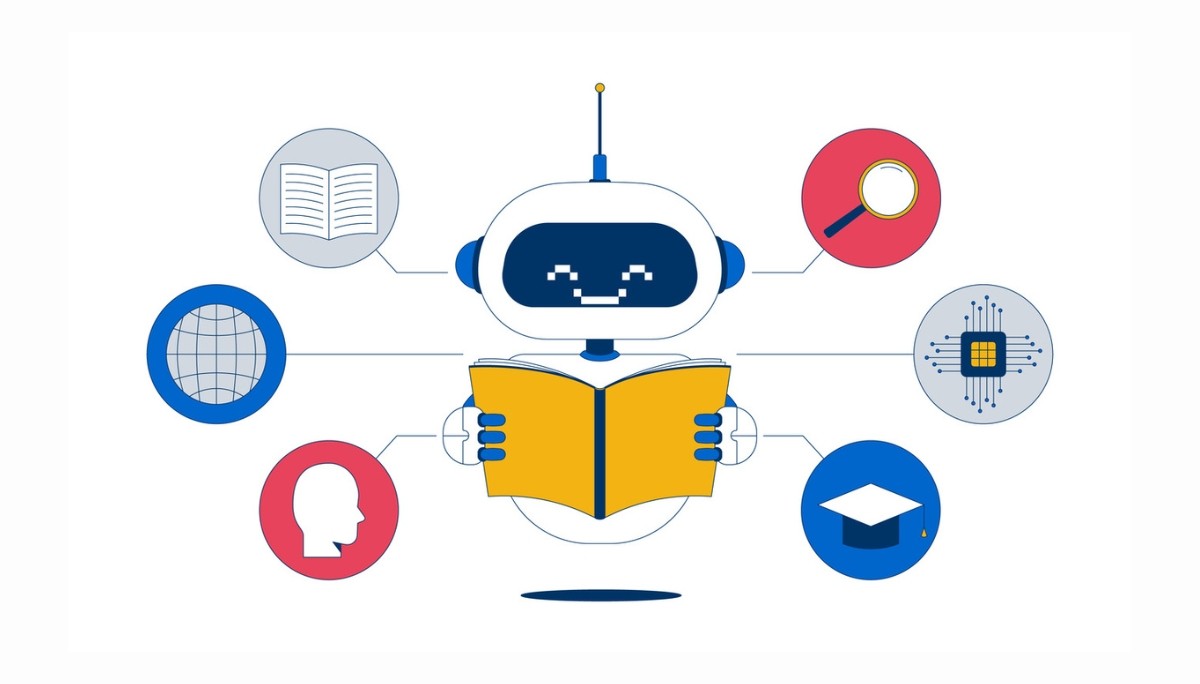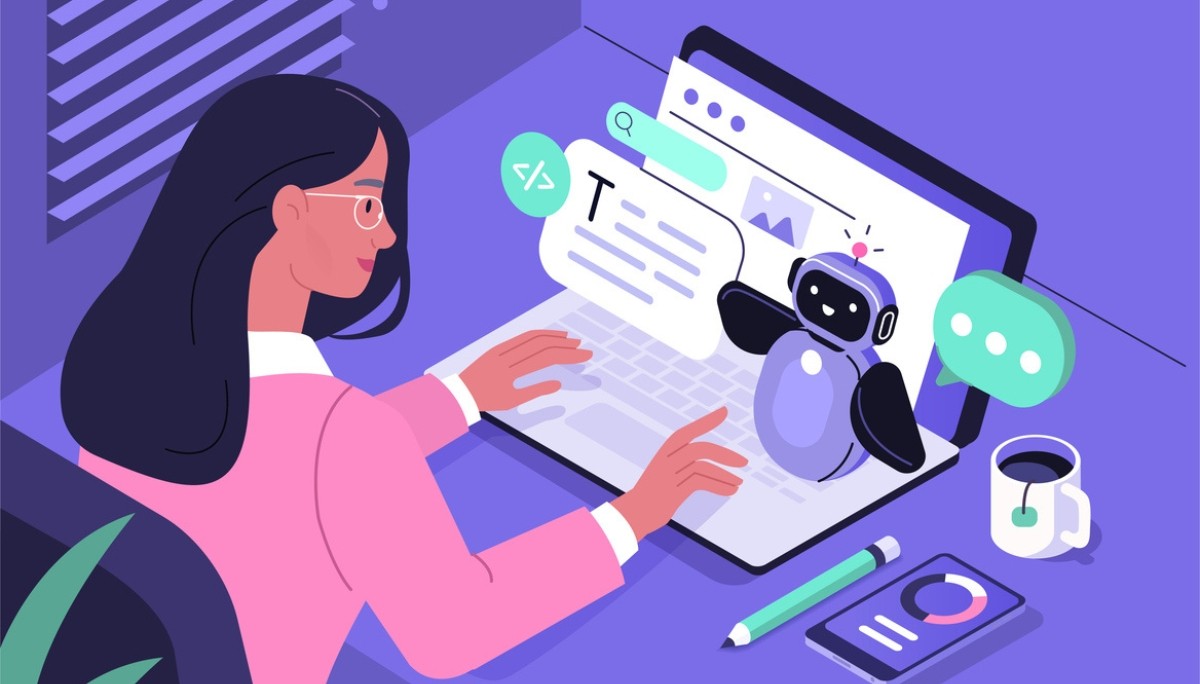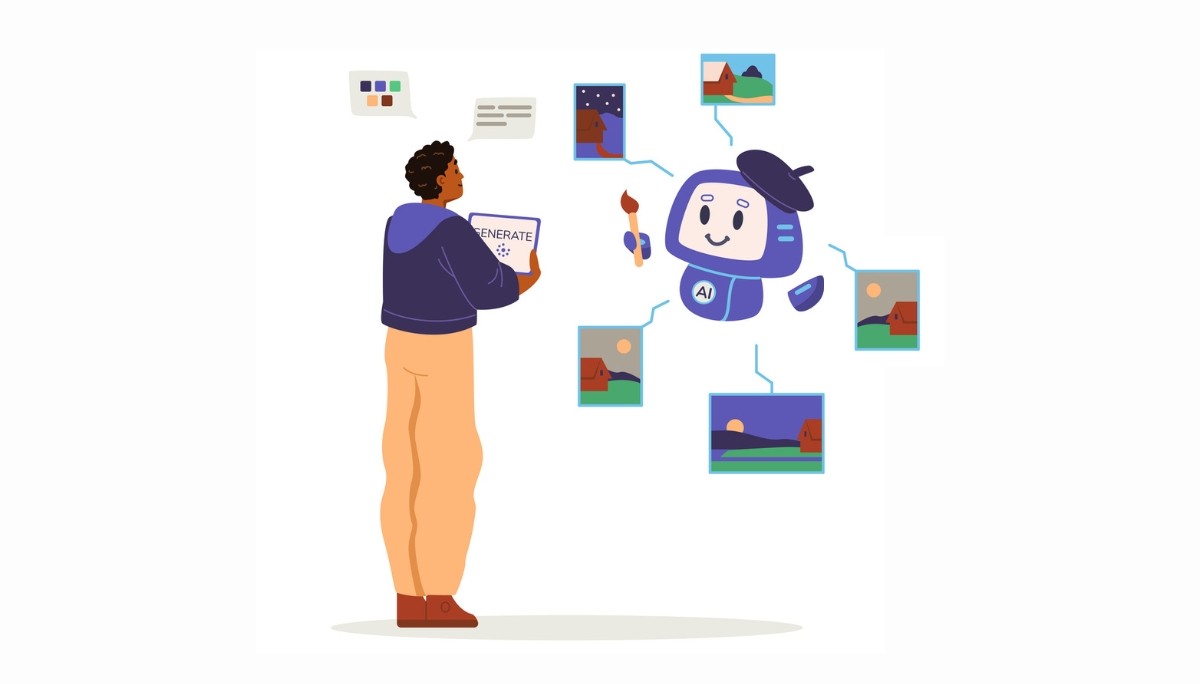Will AI Replace App Developers? What Developers Should Know
By
Samantha Cox
•
Jun 20, 2025
Worried AI might replace app developers? Don’t be. While AI can automate certain coding tasks and improve efficiency, it still can’t match the creativity, problem-solving, and big-picture thinking that real developers bring to the table. In this article, we’ll dive into how AI is shaping the development process and why human developers are still essential. For recruiters looking to hire adaptable, forward-thinking talent, Fonzi AI helps you find developers who know how to work alongside AI, not compete with it, ensuring your team stays efficient and innovative.
Key Takeaways
AI is transforming app development by automating repetitive coding tasks, enabling developers to focus on complex problem-solving and creativity.
While AI tools enhance efficiency, developers are irreplaceable for their critical thinking, creativity, and contextual understanding essential in software development.
Fonzi revolutionizes AI talent acquisition, providing structured evaluations and rapid hiring processes to connect companies with top-tier AI engineers.
The Multifaceted Role of App Developers

App developers wear many hats. Before a single line of code is written, there is strategic planning and concept development. This initial phase lays the foundation for a successful application by aligning key features with the project’s goals and user needs. Contrary to the old perception of an android developer as a mere code implementer, modern mobile developers are now seen as partners in product development, contributing valuable insights to shape the final product.
Once the planning phase is complete, the actual coding begins. However, the work doesn’t stop there. Optimizing application performance is a significant responsibility for app developers. They must ensure that the app runs smoothly across various devices and platforms, providing a seamless user experience. This involves continuous testing and refining, making sure that the app remains competitive in an ever-evolving market.
Moreover, app development is not a solo endeavor. Designers play a crucial role by creating compelling UI/UX designs that enhance user engagement. Developers must collaborate closely with designers to bring these concepts to life, ensuring that the application is not only functional but also visually appealing, as it was created to be, following an effective development workflow.
This collaborative approach highlights the multifaceted nature of the developer’s role, encompassing technical skills, creative thinking, and continuous learning to stay updated with the latest technologies and trends.
AI's Impact on Coding Tasks

AI tools are revolutionizing the coding landscape, making the development process faster and more efficient for the current generation. Tools like Amazon CodeWhisperer enhance the speed and accuracy of code writing, facilitating effective code generation. Similarly, CodeGeeX assists developers by generating code, translating code snippets, and answering technical queries efficiently. These AI coding assistants are becoming indispensable, providing intelligent code suggestions and automating repetitive tasks, thus allowing developers to focus on more complex problems. A code assistant can further streamline these processes. GitHub Copilot can also play a significant role in this evolution.
OpenAI Codex, for instance, allows developers to use natural language prompts to generate functional code, offering relevant suggestions that streamline the coding process. Tabnine further enhances this by offering intelligent code completion, which not only speeds up the coding process but also improves development efficiency. These AI capabilities are particularly beneficial in handling repetitive coding tasks, ensuring consistency and reducing the likelihood of human error.
AI tools also play a pivotal role in code reviews and debugging. Some of these tools include:
Codiga’s static code analysis helps identify potential vulnerabilities and maintains high standards of code quality.
WhatTheDiff simplifies the code review process by offering automated suggestions and summarizing changes effectively.
Cody AI aids in code reviews by analyzing existing code and offering constructive suggestions to improve it.
These new tools streamline the coding process, ensuring that the code is not only functional but also secure and maintainable. If you want to save time and write better code effectively, these data structures allow for a single click to access more features.
However, the impact of AI extends beyond just writing code. Replit enhances the code review process by helping developers understand code better, leading to more efficient collaboration. AI tools like DeepCode AI combine symbolic AI with generative AI to monitor code continuously, helping developers understand complex code logic. This continuous monitoring and intelligent assistance dramatically improve the overall quality and maintainability of the code, making AI an invaluable asset in the modern developer’s toolkit.
Limitations of AI in Software Development
Despite the impressive capabilities of AI, it has its limitations, particularly in the realm of software development. One of the primary challenges is that artificial intelligence struggles with complex problem-solving due to a lack of critical thinking and creativity, which are essential for effective software engineering. While AI can efficiently handle repetitive tasks, it fails to strategize and think like human developers, hampering its ability to generate contextually appropriate code.
Moreover, the creativity required in software development often emphasizes clever reuse of existing solutions rather than sheer originality, a quality that AI cannot achieve. This is evident in scenarios where rewriting code from scratch is sometimes preferred over debugging AI-generated code, showcasing the limitations of these AI systems. Alternative approaches, such as using AI-based coding assistants, have also been known to introduce mistakes in code without achieving significant productivity gains, indicating a risk that developers must manage.
Another significant limitation of AI tools is their potential to create inconsistencies in coding style, which can lead to confusion among teams. If not properly managed, AI can increase the risk of bugs in code, necessitating human oversight and quality control. Senior developers play a key role in guiding the use of AI tools to ensure the generated code aligns with project requirements and standards.
Despite these limitations, AI remains a valuable tool in the developer’s arsenal. However, its success relies heavily on human oversight and strategic thinking. Developers must balance the use of AI with their own expertise to ensure that the final product is robust, secure, and meets all user and business requirements.
Human Creativity and Innovation

Human creativity is the driving force behind innovation in software development. While AI can assist in writing cleaner code and speeding up the development process, it is the unique human creativity that drives the creation of scalable designs and innovative solutions. Developers bring a level of ingenuity and problem-solving ability that AI cannot replicate. This creativity is often expressed through clever reuse of existing solutions and the ability to see connections and possibilities that AI might overlook.
Documentation is another area where human input is indispensable. Ensuring necessary documentation and alignment with project requirements is a task best handled by human developers. Comprehensive documentation clarifies the relationships between code components, making it easier for others to understand and maintain the code. This is crucial for the longevity and scalability of software projects.
Human interaction plays a crucial role in peer learning. It is also essential for fostering a cohesive team environment. Developers learn from each other through collaborative problem-solving and knowledge sharing. This peer learning fosters a culture of continuous improvement and innovation, which is essential for staying competitive in the fast-paced world of software development.
Contextual Understanding and Documentation
Context is critical in software development, and this is an area where AI-generated code often falls short. AI tools can automate code summarization and ensure consistency across projects, enhancing documentation quality. However, they often lack the comprehensive documentation needed to fully understand the code’s functionality and purpose. This lack of context can lead to misunderstandings and errors, making human input essential.
Human developers bring unique insights and reasoning to the documentation process, ensuring that all relevant details are captured. Effective documentation clarifies the relationships between code components, making it easier for AI to generate accurate responses. Moreover, up-to-date documentation is crucial, as outdated information can lead to incorrect results in AI-assisted coding.
AI tools find it easier to understand code when it is accompanied by natural language explanations. This highlights the importance of comprehensive documentation that includes contextual awareness and detailed explanations. By combining the strengths of AI tools with human expertise, developers can ensure that the documentation is both accurate and useful, especially when utilizing a large language model.
Ethical Considerations in AI-Generated Code
The ethical implications of using AI in code generation cannot be overlooked. Human oversight is essential to ensure that AI-generated code meets ethical standards and does not introduce biases. AI tools can inadvertently reflect the prejudices embedded in their training data, leading to biased outcomes. This is why monitoring and auditing AI-generated code are crucial to prevent adverse effects on delivery stability.
The absence of strong oversight can lead to AI making significant decisions without accountability, which can have serious consequences for the final product. Developers must take responsibility for the code generated by AI, ensuring that it aligns with ethical standards and does not introduce security vulnerabilities or other risks. By maintaining a high level of oversight, developers can ensure that AI-generated code is both ethical and reliable.
Team Collaboration and Learning
Team collaboration is a cornerstone of effective software development. App developers play a crucial role in shaping customer experiences and influencing revenue channels. Effective problem-solving often arises from collaborative brainstorming, which fosters creativity and innovation among developers. This collaborative approach is essential for tackling complex problems and developing high-quality software solutions, making every member a valuable team player.
AI tools can enhance team collaboration by automating routine tasks and providing intelligent insights. For instance, AI can analyze team behavior to improve collaboration and ensure efficient resource allocation. Automated sentiment analysis in AI communication platforms helps managers gauge team morale and address conflicts proactively. These capabilities make AI a valuable tool for enhancing team dynamics and productivity.
Moreover, AI coding assistants and AI assistants can enhance learning for developers by providing real-world code examples from platforms like GitHub. This real-time assistance helps developers improve their skills and stay updated with the latest coding practices. By simplifying processes and boosting team productivity, AI tools enable developers to focus on more strategic and creative tasks, including machine learning.
The Augmentation Perspective: AI as a Tool for Developers

AI is not here to replace developers but to augment their capabilities. Key points about the use of AI in software development include:
The use of AI in software development is projected to increase by over 50% each year, highlighting its growing importance.
AI-powered tools can enhance the quality of code by automating repetitive tasks and optimizing workflows.
Nearly all developers now incorporate some form of AI assistance in their daily tasks, making it an integral part of the development process.
The role of software developers is evolving. With AI handling routine coding tasks, developers can focus on broader strategic approaches that AI cannot effectively manage. This shift is transforming developers into platform engineers who build the frameworks that support AI-driven software creation. As AI capabilities expand, developers will play a crucial role in facilitating and providing tools for others to generate software.
Human developers are essential for ensuring that applications are secure and meet all user and business requirements. They bring a level of creativity, critical thinking, and contextual understanding that AI cannot replicate. By leveraging AI as a tool, developers can boost their productivity and create more innovative and user-centric applications.
Fonzi: Revolutionizing AI Talent Acquisition
Fonzi is a curated marketplace that connects companies with highly qualified AI engineers, revolutionizing the way businesses acquire AI talent. Designed to match companies with top-tier AI engineering talent efficiently, Fonzi delivers high-signal, structured evaluations with built-in fraud detection and bias auditing.
This ensures that the hiring process is both transparent and effective, providing companies with the talent they need to succeed in the rapidly evolving AI landscape.
Structured Evaluations and Fraud Detection
Fonzi’s structured evaluations provide transparent insights into candidate abilities, ensuring clarity and precision in assessing skills. This high-signal evaluation process sets Fonzi apart from black-box AI tools or traditional job boards, offering a more reliable and accurate assessment of potential hires. The combination of structured evaluations and fraud detection significantly enhances the quality of matches between candidates and job requirements, ensuring that companies find the right talent for their needs.
Moreover, Fonzi integrates built-in fraud detection and bias auditing within its evaluation process, ensuring fair and unbiased assessments. This focus on integrity and fairness not only enhances the quality of the hiring process but also preserves and elevates the candidate experience, ensuring that engaged and well-matched talent is brought on board.
Fast and Scalable Hiring Process
Fonzi’s hiring process is designed to be fast, consistent, and scalable, with most hires happening within three weeks. This swift recruitment cycle is made possible through the use of automated tools and efficient workflows, saving time and ensuring that companies can quickly fill their hiring needs. The impactful design of Fonzi enhances not only the speed but also the overall efficiency of the hiring process, making it a valuable tool for businesses looking to scale their AI talent pool.
By simplifying and accelerating the hiring process, Fonzi enables companies to stay competitive in the rapidly evolving AI landscape. This fast and scalable approach to hiring ensures that businesses can meet their talent needs without the time-consuming and often cumbersome processes associated with traditional hiring methods.
Supporting Startups and Enterprises
Fonzi’s adaptable platform caters to the hiring needs of both startups in their early stages and large enterprises. For startups, this means providing access to top-tier AI talent that can help accelerate growth and innovation from the very beginning. Fonzi’s flexible approach supports hiring for various roles, from the first AI engineer to larger, more established teams. This adaptability ensures that startups can scale their operations effectively and meet their evolving business requirements.
For larger enterprises, Fonzi accommodates the need for extensive AI talent with the same efficiency and precision. Whether it’s the 10,000th hire or a specialized role, Fonzi’s platform ensures that companies can find the right talent quickly and efficiently. By supporting both early-stage startups and established enterprises, Fonzi bridges the gap between different business needs, making it an invaluable resource for organizations of all sizes.
So What's the Middle Ground?
The middle ground in the debate over AI replacing app developers is clear:
AI will augment rather than replace human developers, providing efficiencies in coding tasks without eliminating the need for human creativity and oversight.
Developers will transition from manual coding to guiding, testing, and refining AI-generated code, ensuring that it meets project requirements and quality standards.
This shift requires developers to acquire new skills and embrace AI as a collaborative tool rather than a replacement.
Using AI development tools provides software developers with a significant competitive edge. This advantage is crucial in today’s fast-paced tech landscape. As the industry evolves, investment in AI for software development is growing. Embracing AI tools can lead to increased productivity and more innovative solutions, but there is a risk of becoming overly reliant on AI. If access to AI is disrupted, it could impact workflows and project timelines. Therefore, a balanced approach that leverages AI’s strengths while maintaining human oversight is crucial.
Ultimately, areas where AI struggles to replace developers include creativity, critical thinking, and contextual understanding. A strong understanding of user-centric design remains crucial for mobile developers to enhance user experiences. By finding the right balance, developers can harness the power of AI to augment their capabilities and create more impactful and user-centric applications.
Summary
In the end, the future of app development isn’t about humans vs. AI, it’s about combining the strengths of both. AI tools can supercharge efficiency and productivity, but they can’t replace the creativity, critical thinking, and real-world context that human developers bring to the table. The real magic happens when developers use AI as a powerful assistant, not a replacement. For recruiters and tech leaders, that means finding talent who can navigate this balance. Fonzi AI helps you connect with forward-thinking developers who know how to collaborate with AI tools to build smarter, more innovative applications, keeping your team ahead of the curve.




